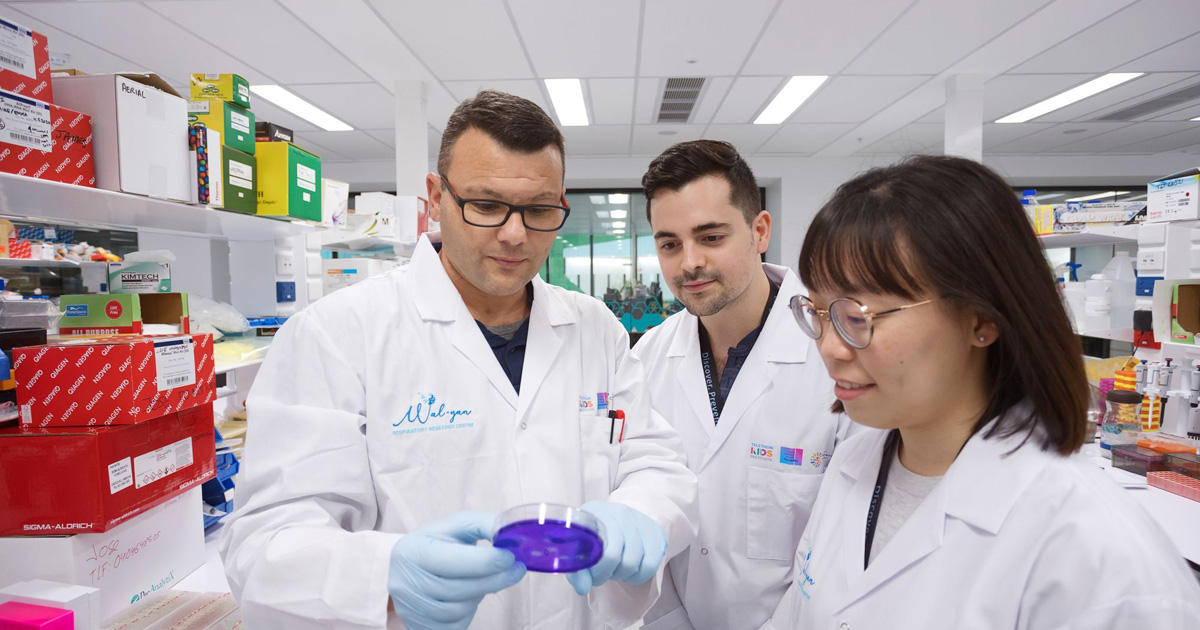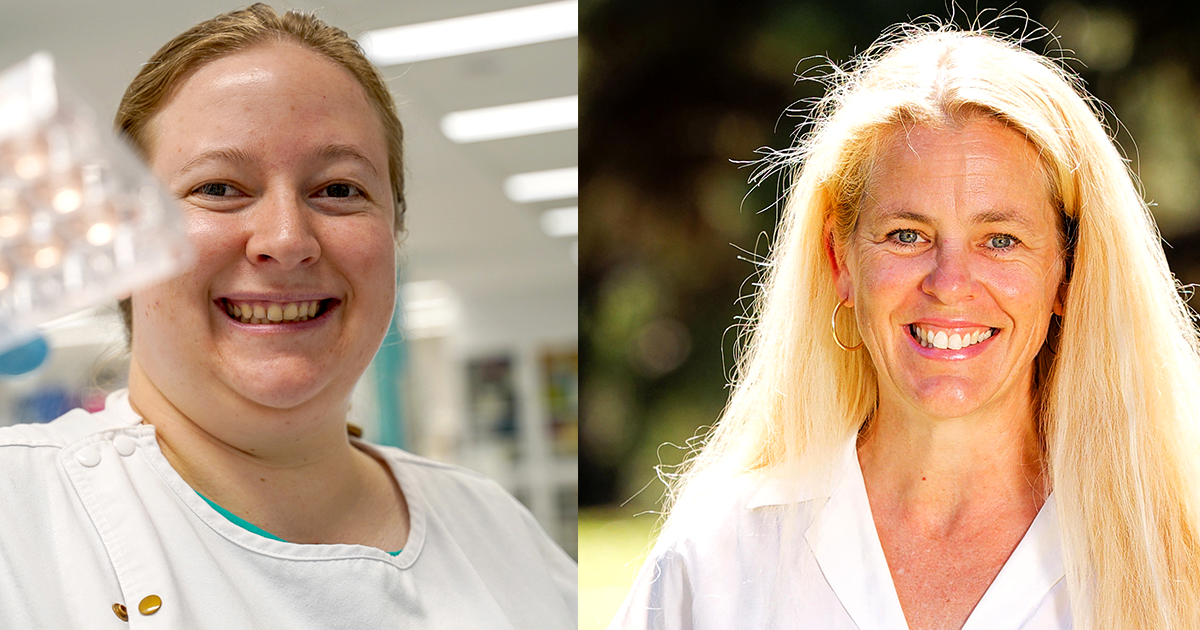Search
Showing results for "Au"

News & Events
Cure4CF Grant a boost for innovative Cystic Fibrosis researchA $350,000 Cure4 Cystic Fibrosis grant is set to propel the Wal-yan Respiratory Research Centre’s Phage WA program forward, supercharging its fight against antimicrobial resistant (AMR) lung infections in people with Cystic Fibrosis (CF) using cutting-edge phage therapy.

News & Events
Top researchers recognised for respiratory researchTwo leading researchers from The Kids received significant endorsements to advance their research at last night’s Thoracic Society of Australia and New Zealand and the Australian and New Zealand Society of Respiratory Science (TSANZSRS) Annual Scientific Meeting in Adelaide.
Research
The Collaboration for Increasing Influenza Vaccination in Children (CIIVIC): a meeting reportThe burden of seasonal influenza disease in Australian children is substantial, especially for those with medical comorbidities including chronic cardiac, respiratory, neurological and immunosuppressive conditions. Influenza is more likely to be severe in children with comorbidities compared to previously healthy children (e.g. more frequent and longer hospitalisation, more frequent intensive care unit admission and requiring respiratory support). Direct protection against influenza by vaccination is critical for children with comorbidities and remains the most effective tool for influenza prevention.
Research
The perceived effects of cannabis products in the management of seizures in CDKL5 Deficiency DisorderCDKL5 Deficiency Disorder (CDD) is a severe treatment-resistant form of early-onset epilepsy. Current treatment options are often ineffective and associated with adverse effects, forcing families to seek alternative therapies for their children including products derived from cannabis. Reportsof miraculous cures and a public preferencefor 'natural' therapies have resulted in considerable public interest, and so this study aimed to characterize the use of cannabis in these individuals, as well as compare caregiver perceptions of efficacy and safety to objective evidence of seizure control and number of antiepileptic drugs used.
Research
A broad autism phenotype expressed in facial morphologyThese data provide the first evidence for a broad autism phenotype expressed in a physical characteristic
Research
Online self-compassion training to improve the wellbeing of youth with chronic medical conditions: Protocol for a randomised control trialThe Self-Compassion Online program could provide a scalable solution for improving psychological outcomes and quality of life among youth with chronic illness
Research
Shade coverage, ultraviolet radiation and children’s physical activity in early childhood education and careThe provision of shade, particularly through natural forms such as tree canopy, is an important sun protection strategy and enabler of outdoor time
Research
Assessment of Cannabidiol and Delta9-Tetrahydrocannabiol in Mouse Models of Medulloblastoma and EpendymomaChildren with medulloblastoma and ependymoma are treated with a multidisciplinary approach that incorporates surgery, radiotherapy, and chemotherapy; however, overall survival rates for patients with high-risk disease remain unsatisfactory. Data indicate that plant-derived cannabinoids are effective against adult glioblastoma; however, preclinical evidence supporting their use in pediatric brain cancers is lacking. Here we investigated the potential role for Δ9-tetrahydrocannabinol (THC) and cannabidiol (CBD) in medulloblastoma and ependymoma. Dose-dependent cytotoxicity of medulloblastoma and ependymoma cells was induced by THC and CBD in vitro, and a synergistic reduction in viability was observed when both drugs were combined.
Research
Epidemiology and seasonality of human parainfluenza serotypes 1-3 in Australian childrenParainfluenza viruses are significant contributors to childhood respiratory illness worldwide, although detailed epidemiological studies are lacking. Few recent Australian studies have investigated serotype-specific PIV epidemiology, and there is a paucity of southern hemisphere PIV reports. We report age-stratified PIV hospitalisation rates and a mathematical model of PIV seasonality and dynamics in Western Australia (WA).
Research
Indirect effects of the COVID-19 pandemic on malaria intervention coverage, morbidity, and mortality in Africa: a geospatial modelling analysisSubstantial progress has been made in reducing the burden of malaria in Africa since 2000, but those gains could be jeopardised if the COVID-19 pandemic affects the availability of key malaria control interventions. The aim of this study was to evaluate plausible effects on malaria incidence and mortality under different levels of disruption to malaria control.
